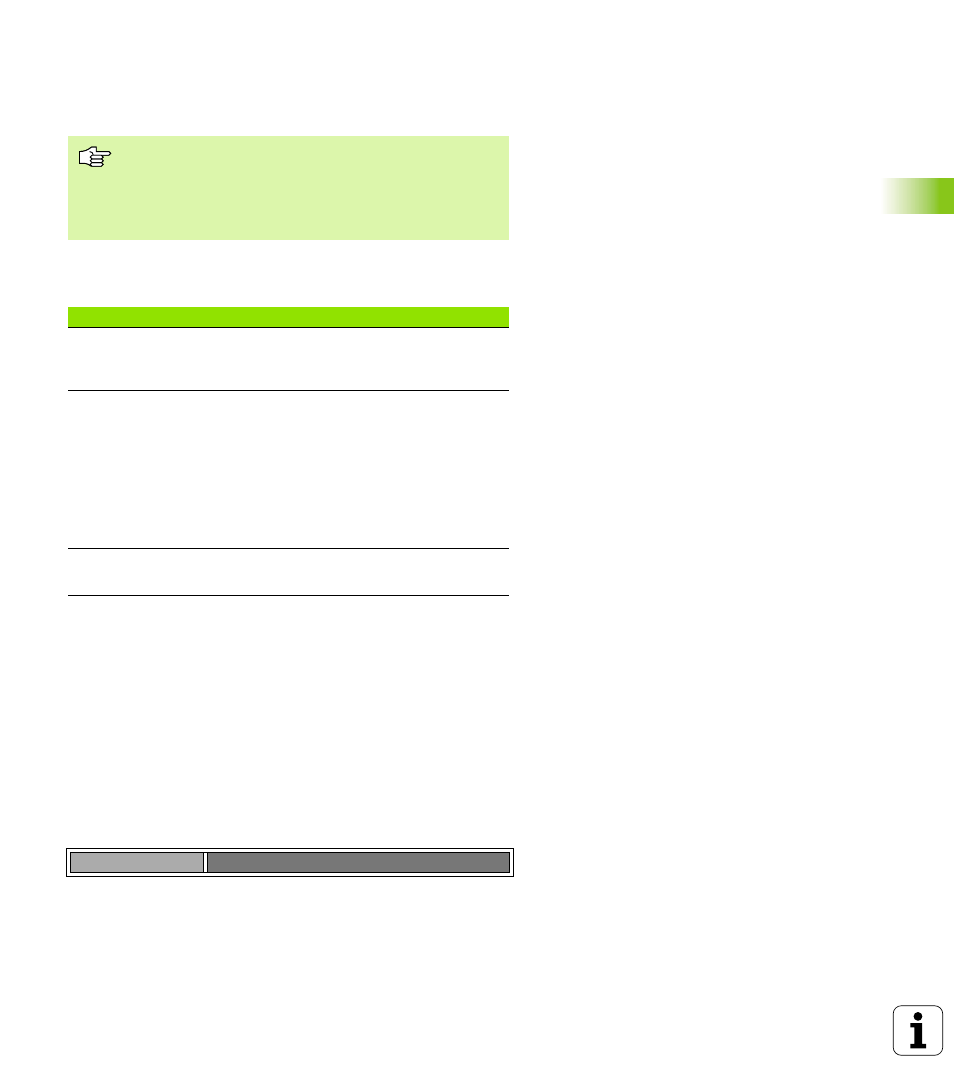2 file management: fundamentals, Files – HEIDENHAIN TNC 426 (280 476) User Manual
Page 66

HEIDENHAIN TNC 426, TNC 430
39
4.2 File Manag
e
ment: F
undamentals
4.2 File Management:
Fundamentals
Files
When you write a part program on the TNC, you must first enter a file
name. The TNC saves the program to the hard disk as a file with the
same name. The TNC can also save texts and tables as files.
The TNC provides a special file management window in which you can
easily find and manage your files. Here you can call, copy, rename and
erase files.
You can manage any number of files on the TNC’s hard disk. Their total
size, however, must not exceed 1,500 MB.
File names
When you store programs, tables and texts as files, the TNC adds an
extension to the file name, separated by a point. This extension
indicates the file type.
Using the MOD function PGM MGT (see “Configuring
PGM MGT” on page 433), select between standard and
advanced file management.
If the TNC is connected to a network (optional), then use
file management with additional functions.
Files in the TNC
Type
Programs
In HEIDENHAIN format
In ISO format
.H
.I
Tables for
Tools
Tool changers
Pallets
Datums
Points (digitizing range of measuring touch
probe)
Cutting data
Cutting materials, workpiece materials
.T
.TCH
.P
.D
.PNT
.CDT
.TAB
Texts as
ASCII files
.A
PROG20
.H
File name
File type
Maximum Length
See table “Files in the TNC.”
